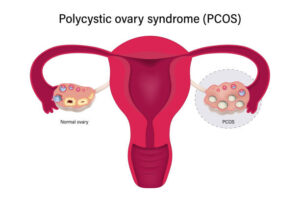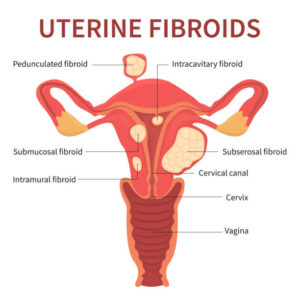Understanding infertility in women and finding hope
Female infertility is a challenging, yet all-too-common issue that affects about one out of every five women in the United States. At Conceive NJ, our New Jersey fertility specialist believes in empowering women with knowledge about the causes of female infertility, while providing hope through advanced fertility treatments. If you’re facing difficulties conceiving, know that you are not alone – there are options available to help you on your journey to becoming a parent.
Infertility in women defined
Female infertility is often defined as the inability to conceive after a year of regular, unprotected intercourse. However, because women’s fertility declines as they move closer to menopause, we recommend that women 35 or older seek help from a reproductive endocrinologist if they have been trying to conceive without success for six months.
Causes of infertility in women
Age-related infertility (advanced maternal age)
How age affects fertility: Women are born with all the eggs they will have throughout their lives. As a woman ages, the quantity and quality of her eggs naturally decline, reducing the chances of successful conception. Read More
Recurrent pregnancy loss (miscarriage)
Recurrent pregnancy loss (RPL) means a woman has 2 or more miscarriages before 20 weeks of pregnancy. There are a variety of potential causes of RPL – including genetic and physical conditions from either partner – and patients who suffer from this condition deserve a thorough and comprehensive workup to try to determine the underlying reason for their circumstance. Read More
Endometriosis
Endometriosis is a chronic condition where tissue similar to the lining inside the uterus, known as the endometrium, begins to grow outside the uterus. These growths, referred to as endometrial lesions or implants, commonly attach to the ovaries, fallopian tubes, the outer surface of the uterus and other parts of the pelvic cavity. Read more
Fallopian tube blockage or damage
If a woman’s fallopian tubes are blocked or damaged, it can prevent sperm from reaching the egg, or a fertilized egg from reaching the uterus for implantation. Possible causes of damaged or blocked fallopian tubes include pelvic inflammatory disease, endometriosis or previous surgeries.
Ovulation disorders

Some women experience irregular ovulation, while others learn they are not ovulating at all. Conditions such as polycystic ovary syndrome (PCOS), hormonal imbalances and thyroid disorders can all interfere with ovulation.
Uterine abnormalities and other issues

Structural abnormalities of the uterus, such as uterine fibroids, polyps, uterine scarring or adhesions, or an abnormally shaped uterus can interfere with embryo implantation and normal development of a pregnancy.
Lifestyle & other health factors
Some other social and lifestyle factors that affect fertility can include obesity, smoking, or alcohol and drug use, and can be improved with lifestyle changes. Other factors may include non-reproductive diseases or conditions, such as autoimmune disorders, which may be treatable with medications.
Treatment for infertility in women
With advancements in fertility treatments, the dream of starting a family is within reach for many women facing infertility challenges. By consulting with our expert fertility specialist at Conceive NJ, you can receive a comprehensive evaluation, personalized guidance, and a tailored treatment plan to address your specific needs and help you achieve your family-building goals.
Ovulation induction
Medications can be used to stimulate ovulation and regulate hormonal imbalances, increasing the chances of successful natural conception.
Intrauterine insemination (IUI)
This procedure involves placing prepared sperm directly into the uterus during ovulation, increasing the chances of fertilization.
In vitro fertilization (IVF)
IVF is a highly effective fertility treatment that involves retrieving eggs directly from the ovaries, fertilizing them with sperm in our IVF laboratory, and transferring one resulting embryo into the uterus. It can address multiple causes of infertility and offers higher success rates.
Donor eggs or surrogacy
For women with diminished ovarian reserve or certain medical conditions, using donor eggs or a gestational carrier can be a fulfilling, alternative path to parenthood.
Finding support for female infertility
Remember, infertility in women is a common issue, and there are effective fertility treatments available to overcome the challenges preventing you from having a baby.
Take the first step by making an appointment for a consultation with our experienced New Jersey fertility specialist. We offer caring guidance for women’s infertility and the best treatment options to help you fulfill your dream of becoming a mother.
Embrace hope and the possibilities ahead as you navigate a new path to parenthood.

